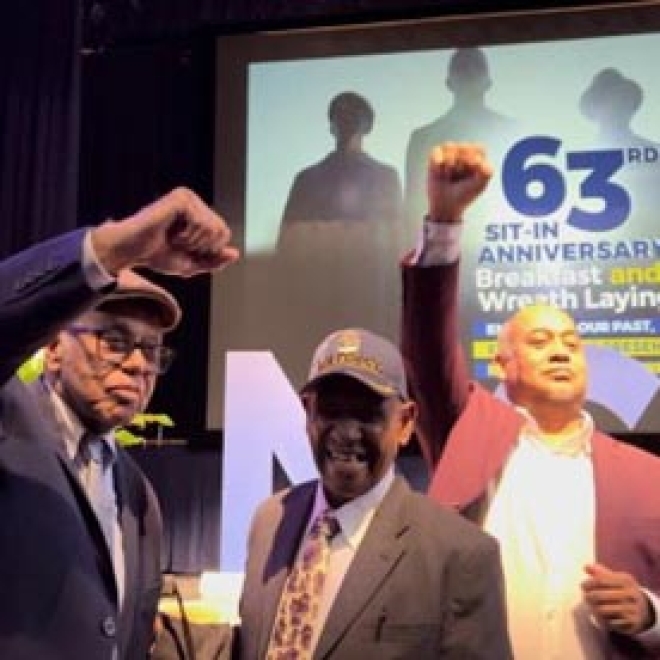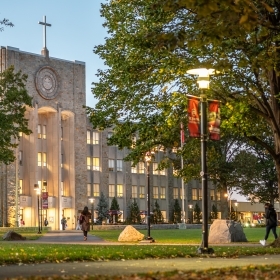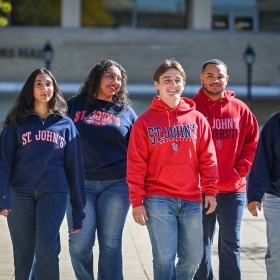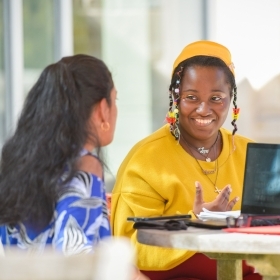My Grandfather, One-Quarter of the Greensboro Four

On February 1, 1960, four African American first-year students at North Carolina Agricultural and Technical State University (N.C. A&T) courageously took seats at a “White only” F.W. Woolworth’s lunch counter in Greensboro, NC. This seemingly small act of defiance in the South sparked similar protests for racial equality and civil disobedience across the United States.
The Greensboro Four, as they have become known, includes the late Franklin McCain, David Richmond, Jibreel Khazan (born Ezell Alexander Blair, Jr.), and my grandfather, Major General Joseph A. McNeil ’98HON.
I am currently a sophomore at St. John’s University, where in 1998, my grandfather, the Mobilization Assistant to the Commander of the Headquarters Air Force Reserve Command at Robins Air Force Base, was honored at the 128th Commencement Exercises and awarded an honorary Doctor of Laws degree.
“I set about to take on something that was grossly unjust and that many said would never change,” he told graduates at the ceremony. “Little did we know that with the help of thousands of others, it would bring about something like the Civil Rights Act.”
I recently joined my grandfather at the 63rd annual Sit-In Anniversary Breakfast and Wreath Laying celebrating the Greensboro Four at A&T State University. The event, which was attended by government officials, representatives from colleges and high schools, local media, and students, featured choir performances, videos, speeches, and a panel discussion, as well as a wreath-laying ceremony in front of the statue on campus that commemorates the four. People who led social justice movements during their time at A&T University and after were also recognized.
While my grandfather and Mr. Khazan are the only members of the four still alive, the legacy of the entire group continues. “Our truth is our truth, and that’s not going to change regardless of propaganda,” my grandfather said.
Throughout my life, I have heard my grandfather reflect on his experience in Greensboro—how he and his classmates met in their dorm rooms to strategize their sit-in plan and strengthen the movement for integration. Now that I am a college student—and the same age he was during his legendary sit-in—I am finally able to appreciate the impact he and his classmates made on the world.
At the wreath-laying ceremony, I was asked what it means to have such an influential grandfather. “I’ve always looked at him as the man who would take me out for ice cream and to see Broadway plays as a child,” I responded. “I never understood all of this to the degree I do now.”
I continued, “With time, I’ve realized how inspiring my grandfather is—and not just through his actions, but through his words, as well. I have grown to admire him for more than the role he plays as my grandfather, but as the person closest to me who never stops encouraging me to achieve greatness and challenge myself more than the world ever could.”






